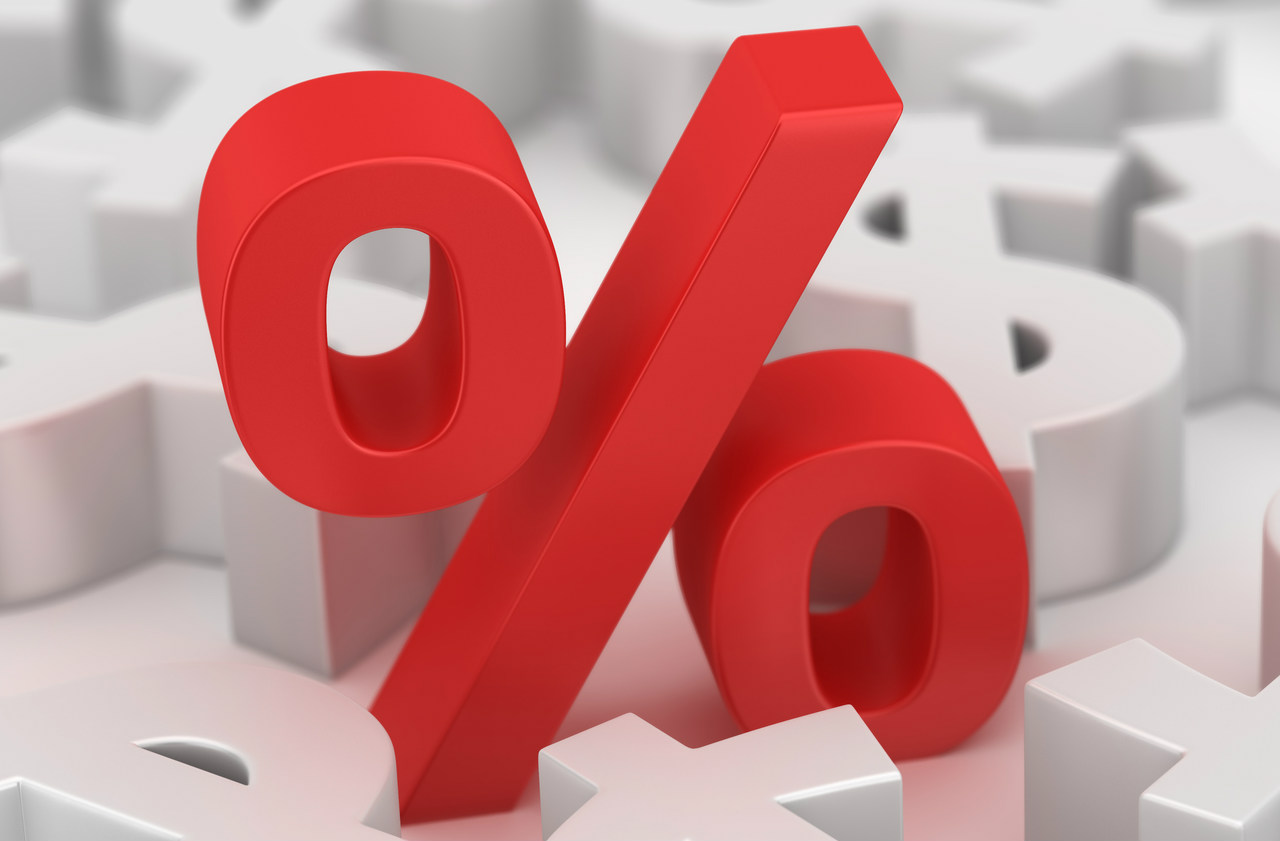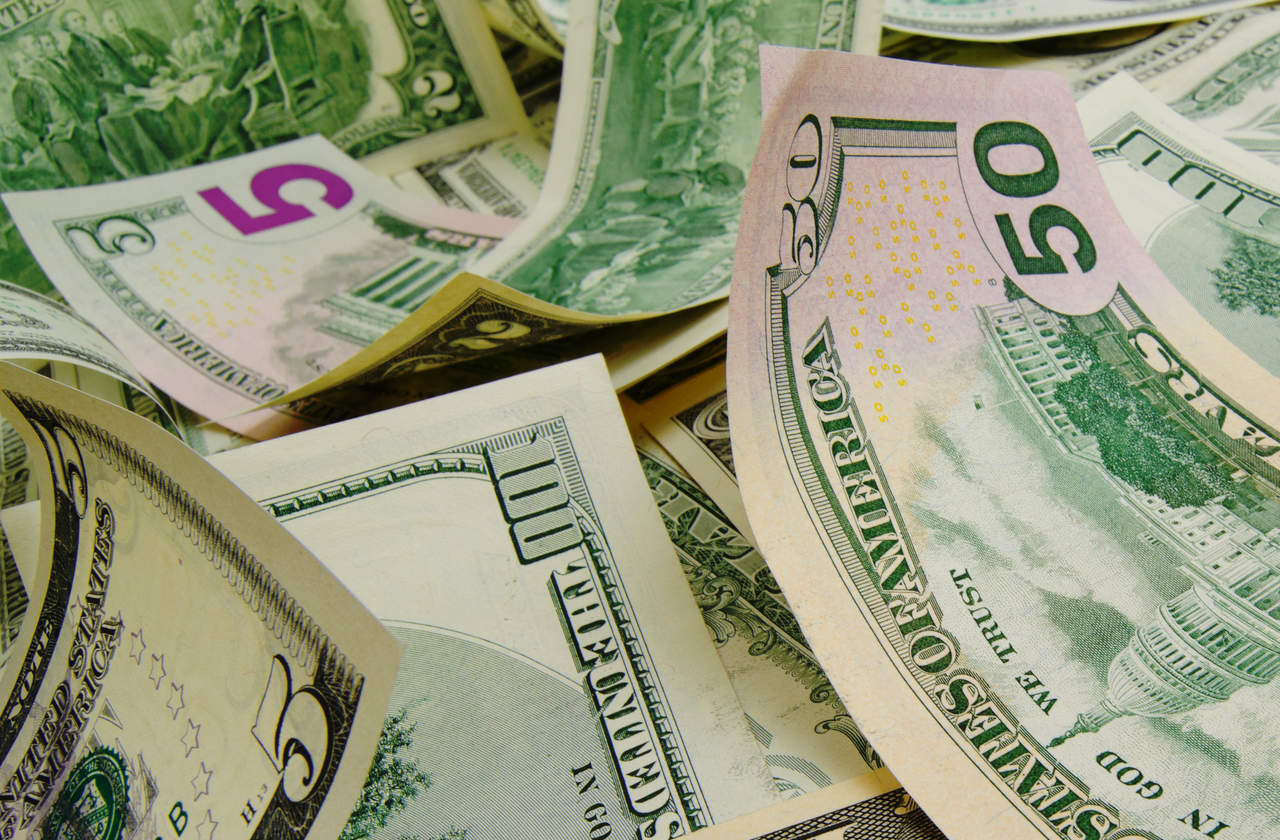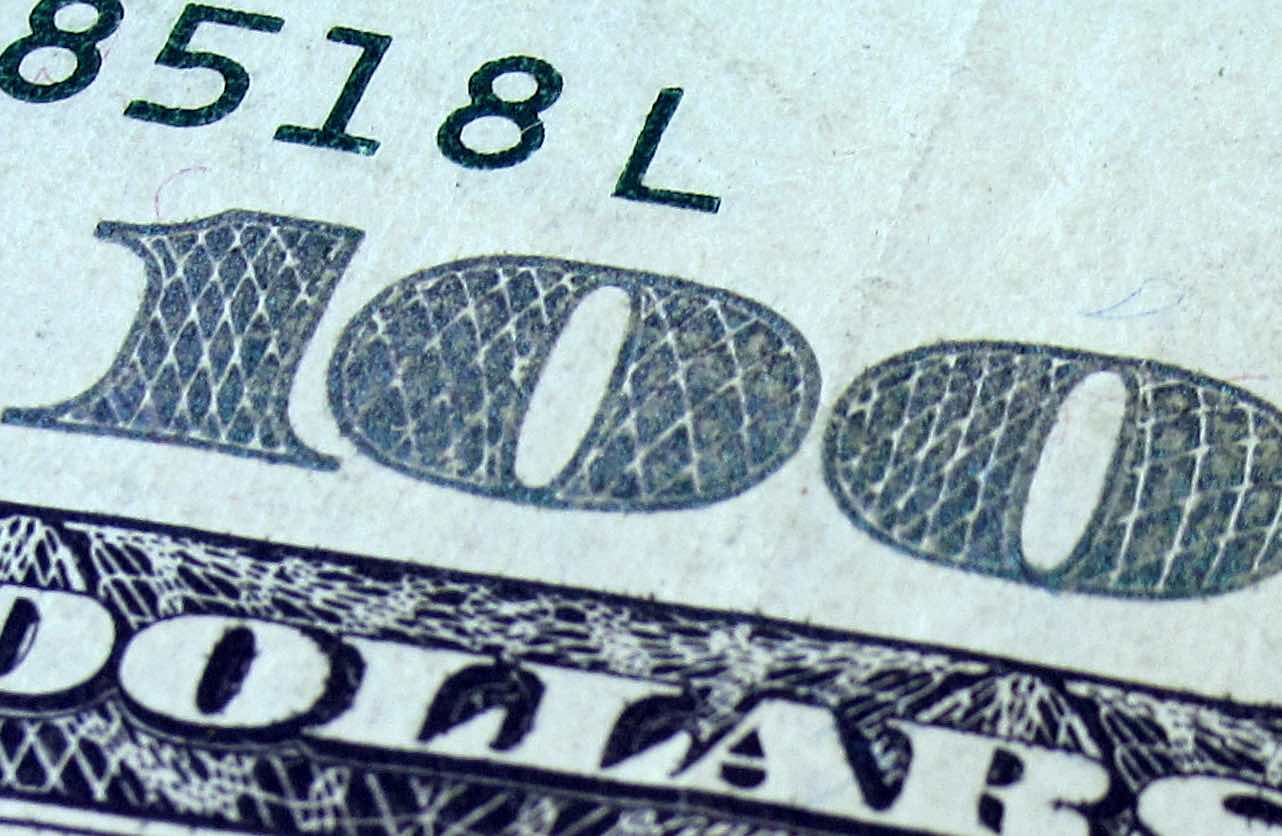6 Stocks That Stand to Gain From Higher Interest Rates
A Federal Reserve rate hike appears all but certain on the heels of February's strong jobs report.


Profit and prosper with the best of Kiplinger's advice on investing, taxes, retirement, personal finance and much more. Delivered daily. Enter your email in the box and click Sign Me Up.
You are now subscribed
Your newsletter sign-up was successful
Want to add more newsletters?

Delivered daily
Kiplinger Today
Profit and prosper with the best of Kiplinger's advice on investing, taxes, retirement, personal finance and much more delivered daily. Smart money moves start here.

Sent five days a week
Kiplinger A Step Ahead
Get practical help to make better financial decisions in your everyday life, from spending to savings on top deals.

Delivered daily
Kiplinger Closing Bell
Get today's biggest financial and investing headlines delivered to your inbox every day the U.S. stock market is open.

Sent twice a week
Kiplinger Adviser Intel
Financial pros across the country share best practices and fresh tactics to preserve and grow your wealth.

Delivered weekly
Kiplinger Tax Tips
Trim your federal and state tax bills with practical tax-planning and tax-cutting strategies.

Sent twice a week
Kiplinger Retirement Tips
Your twice-a-week guide to planning and enjoying a financially secure and richly rewarding retirement

Sent bimonthly.
Kiplinger Adviser Angle
Insights for advisers, wealth managers and other financial professionals.

Sent twice a week
Kiplinger Investing Weekly
Your twice-a-week roundup of promising stocks, funds, companies and industries you should consider, ones you should avoid, and why.

Sent weekly for six weeks
Kiplinger Invest for Retirement
Your step-by-step six-part series on how to invest for retirement, from devising a successful strategy to exactly which investments to choose.
A Federal Reserve rate hike appears all but certain on the heels of February's strong jobs report. But financial stocks, traditional beneficiaries of higher interest rates, have already rallied mightily since the presidential election in November. If the central bank does indeed lift short-term rates when it concludes its two-day meeting on March 15, how much upside in financial stocks could there be left?
Plenty, says analyst Richard X. Bove of Rafferty Capital Markets. Due to safeguards put in place during the Great Recession, financial institutions are sitting on mountains of cash that are earning very low returns. "In the last 10 years, the government has forced them to raise their cash and securities, so if you get an increase in rates they see a jump in interest income," Bove says. "And there's no cost against that. It's a simple increase in revenue."
SEE ALSO:27 Best Stocks to Own in 2017
Kiplinger is forecasting three quarter-point rate hikes in 2017. If that holds true, the Fed's target on the federal-funds rate, the rate banks charge each other for overnight loans and a key influencer of other interest rates, would rise to a range of 1.25% to 1.5% by the end of the year. And as rates rise, banks, asset managers, insurers and other financial companies with heaps of assets already on the books will prosper without management having to lift a finger. Here are six stocks, in particular, that are well positioned to benefit from Fed rate hikes.
Data is as of March 10, 2017, unless otherwise indicated. Click on symbol links in each slide for current share prices and more.
(Stocks are listed in alphabetical order. Market capitalization, provided by Zacks.com, represents current share price times the number of share outstanding. Dividend yield is calculated based on the last four quarterly dividend payments.)

Bank of America
- Symbol: BAC
- Share price: $25.31
- Market cap: $253.7 billion
- Dividend yield: 1.1%
All of the big national banks should get a lift from rising interest rates, but Bank of America stands out. By the bank's own estimates, a one-percentage-point rise in short- and long-term rates would increase its net interest income -- the difference between how much it earns in interest on loans and how much interest it pays on deposits -- by $3.4 billion a year. That's real money even for a bank the size of Bank of America, which reported net interest income of $10.3 billion in the fourth quarter.
Analysts also like the tailwind Bank of America is getting from expense reductions. "We believe that BAC shareholders will continue to benefit from owning BAC as the Fed increases rates and BAC management executes on the company's cost saving program," says Brian Kleinhanzl of Keefe Bruyette & Woods.
Kleinhanzl has a rating of "outperform" (buy, essentially) on the stock based on the expectation of two additional Fed rate hikes per year in 2017 and 2018.

Berkshire Hathaway
- Symbol: BRK.B
- Share price: $174.98
- Market cap: $431.6 billion
- Dividend yield: 0%
As an owner of insurance companies and an investor in big banks, Warren Buffett's Berkshire Hathaway will profit from rising interest rates in a number of ways, says David Kass, a professor at the University of Maryland's Robert H. Smith School of Business who studies Buffett and is a Berkshire shareholder.
”Since Berkshire currently has about $85 billion in cash invested primarily in short-term Treasuries, a [one percentage point] increase in short-term interest rates results in an additional income of $850 million per year for Berkshire," Kass says. "Furthermore, Wells Fargo, one of Berkshire's largest equity investments, will benefit from an increase in earnings as interest rates rise. Their corresponding share prices should then also increase." Berkshire owns about half a billion shares of Wells Fargo (WFC) alone.
The bottom line is that Berkshire's businesses, which comprise 81% of its assets, and its portfolio of stocks, which account for 19%, will become increasingly valuable as rates rise, says Kass.

JPMorgan Chase
- Symbol: JPM
- Share price: $91.28
- Market cap: $326.1 billion
- Dividend yield: 2.1%
After Bank of America, Bove says JPMorgan Chase is best positioned to take advantage of higher interest rates. "They have something like $600 billion in assets that would see an increased return when interest rates go up," the analyst says. And even in the unlikely event that there are no rate increases this year, JPMorgan still expects the Fed's quarter-point hike from December to boost net interest income by approximately $3 billion in 2017. Net interest income totaled about $46 billion last year.
Credit Suisse analyst Susan Roth Katzke has an "outperform" rating on the stock, thanks to above average and improving return on equity, driven in part by higher rates. Return on equity is a key measure of a bank's profitability that shows how much income it generates on each dollar of shareholder equity.
UBS Global Research rates share at “buy,” noting that the bank is "well positioned to benefit from higher interest rates, moderately faster economic growth, and, possibly, better capital markets.”
SEE ALSO: 10 Stocks Every Retiree Should Own

Markel Corp.
- Symbol: MKL
- Share price: $975.96
- Market cap: $13.6 billion
- Dividend yield: 0%
Property and casualty insurance companies are a big under-the-radar beneficiary of rising interest rates. They have a continuous inflow of cash from premium payments that isn’t immediately paid out in claims. The difference, known as the float, is held mostly in safe, liquid investments. That makes insurers large investors in high-quality short-term debt. Since short-term debt rolls over relatively quickly, insurance companies can earn more interest on their holdings in a rising-rate environment as new debt is issued at higher rates.
But Markel, a specialty insurance company operating in variety of niche markets, has an unusual group of holdings that works to its advantage, analysts say. "Markel has an atypical investment portfolio -- approximately 50% is fixed maturity securities, but the company has more allocated to equity securities than most other insurers," says Boenning & Scattergood analyst Robert Farnam, who rates shares at "outperform."
The advantage of such a portfolio is that the insurer gets a disproportionate boost from rising stock prices associated with a stronger economy and higher interest rates. Markel’s equity investments have beaten the return on the S&P 500 over the last 27 years, according to the analyst.
SEE ALSO: 6 Bond Funds to Boost Your Income

Northern Trust
- Symbol: NTRS
- Share price: $89.30
- Market cap: $20.4 billion
- Dividend yield: 1.7%
Northern Trust is a financial holding company, offering services such as wealth management, private banking and custodial and administrative services for institutions. It’s something of a "quasi" bank, Bove says, and it's positioned for much higher returns as rates go up.
The duration of the company's bond portfolio is a bit longer than a year, Bove notes. That’s a short period of time in the world of fixed income and suggests a one percentage point rise in interest rates would only lower the value of its bond portfolio by 1% or so. As rates rise, Northern Trust can quickly replace mature debt with newer bonds carrying higher interest payments. Bove notes that as of Dec. 31, the company had $942 billion in assets under management and $8.5 trillion in assets under custody and administration.
In addition to higher interest income, Northern Trust gets a lift from a rising stock market. "If the equity markets go up, they see a big jump in revenues because they charge based on assets under management or custody and there's no cost against it," Bove says. When stronger economic growth is in the forecast, as it is today, interest rates and stock prices can rise at the same time.

TD Ameritrade
- Symbol: AMTD
- Share price: $39.42
- Market cap: $20.8 billion
- Dividend yield: 1.8%
Investors are nervous over the fact that retail brokerage firms are cutting trading commissions to the bone. Recently, both Fidelity and Charles Schwab slashed the price of online stock trades to just $4.95. TD Ameritrade charges $6.95. But Credit Suisse analysts say the perception of any looming threat to brokerage firms is based more on fear than fundamentals.
That’s because rising rates make brokerages’ loans to clients more profitable. They also attract more deposits to money market funds, a popular place for clients to park cash. TD Ameritrade is also getting a better deal on its $4 billion acquisition of Scottrade, announced in October. Credit Suisse notes that the rise in interest rates has already made a marked difference in the value of the deal because Scottrade is to move $28 billion in customer deposits to TD Ameritrade.
Rising rates also make TD Ameritrade less reliant on revenue from trading, note analysts at William Blair Equity Research, which can be volatile. "41% of [fiscal] 2016 revenue came from trading ... but this percentage should shrink as interest rates rise," says analyst Christopher Shutler. For its 2016 fiscal year ended September 30, TD Ameritrade reported total revenue of $3.3 billion.
Profit and prosper with the best of Kiplinger's advice on investing, taxes, retirement, personal finance and much more. Delivered daily. Enter your email in the box and click Sign Me Up.

Dan Burrows is Kiplinger's senior investing writer, having joined the publication full time in 2016.
A long-time financial journalist, Dan is a veteran of MarketWatch, CBS MoneyWatch, SmartMoney, InvestorPlace, DailyFinance and other tier 1 national publications. He has written for The Wall Street Journal, Bloomberg and Consumer Reports and his stories have appeared in the New York Daily News, the San Jose Mercury News and Investor's Business Daily, among many other outlets. As a senior writer at AOL's DailyFinance, Dan reported market news from the floor of the New York Stock Exchange.
Once upon a time – before his days as a financial reporter and assistant financial editor at legendary fashion trade paper Women's Wear Daily – Dan worked for Spy magazine, scribbled away at Time Inc. and contributed to Maxim magazine back when lad mags were a thing. He's also written for Esquire magazine's Dubious Achievements Awards.
In his current role at Kiplinger, Dan writes about markets and macroeconomics.
Dan holds a bachelor's degree from Oberlin College and a master's degree from Columbia University.
Disclosure: Dan does not trade individual stocks or securities. He is eternally long the U.S equity market, primarily through tax-advantaged accounts.
-
 5 Vince Lombardi Quotes Retirees Should Live By
5 Vince Lombardi Quotes Retirees Should Live ByThe iconic football coach's philosophy can help retirees win at the game of life.
-
 The $200,000 Olympic 'Pension' is a Retirement Game-Changer for Team USA
The $200,000 Olympic 'Pension' is a Retirement Game-Changer for Team USAThe donation by financier Ross Stevens is meant to be a "retirement program" for Team USA Olympic and Paralympic athletes.
-
 10 Cheapest Places to Live in Colorado
10 Cheapest Places to Live in ColoradoProperty Tax Looking for a cozy cabin near the slopes? These Colorado counties combine reasonable house prices with the state's lowest property tax bills.
-
 The New Fed Chair Was Announced: What You Need to Know
The New Fed Chair Was Announced: What You Need to KnowPresident Donald Trump announced Kevin Warsh as his selection for the next chair of the Federal Reserve, who will replace Jerome Powell.
-
 January Fed Meeting: Updates and Commentary
January Fed Meeting: Updates and CommentaryThe January Fed meeting marked the first central bank gathering of 2026, with Fed Chair Powell & Co. voting to keep interest rates unchanged.
-
 Stocks See First Back-to-Back Losses of 2026: Stock Market Today
Stocks See First Back-to-Back Losses of 2026: Stock Market TodayRising geopolitical worries and a continued sell off in financial stocks kept pressure on the main indexes on Wednesday.
-
 The December CPI Report Is Out. Here's What It Means for the Fed's Next Move
The December CPI Report Is Out. Here's What It Means for the Fed's Next MoveThe December CPI report came in lighter than expected, but housing costs remain an overhang.
-
 How Worried Should Investors Be About a Jerome Powell Investigation?
How Worried Should Investors Be About a Jerome Powell Investigation?The Justice Department served subpoenas on the Fed about a project to remodel the central bank's historic buildings.
-
 The December Jobs Report Is Out. Here's What It Means for the Next Fed Meeting
The December Jobs Report Is Out. Here's What It Means for the Next Fed MeetingThe December jobs report signaled a sluggish labor market, but it's not weak enough for the Fed to cut rates later this month.
-
 Nasdaq Takes a Hit as the Tech Trade Falters: Stock Market Today
Nasdaq Takes a Hit as the Tech Trade Falters: Stock Market TodayThe Dow Jones Industrial Average outperformed on strength in cyclical stocks.
-
 The November CPI Report Is Out. Here's What It Means for Rising Prices
The November CPI Report Is Out. Here's What It Means for Rising PricesThe November CPI report came in lighter than expected, but the delayed data give an incomplete picture of inflation, say economists.
